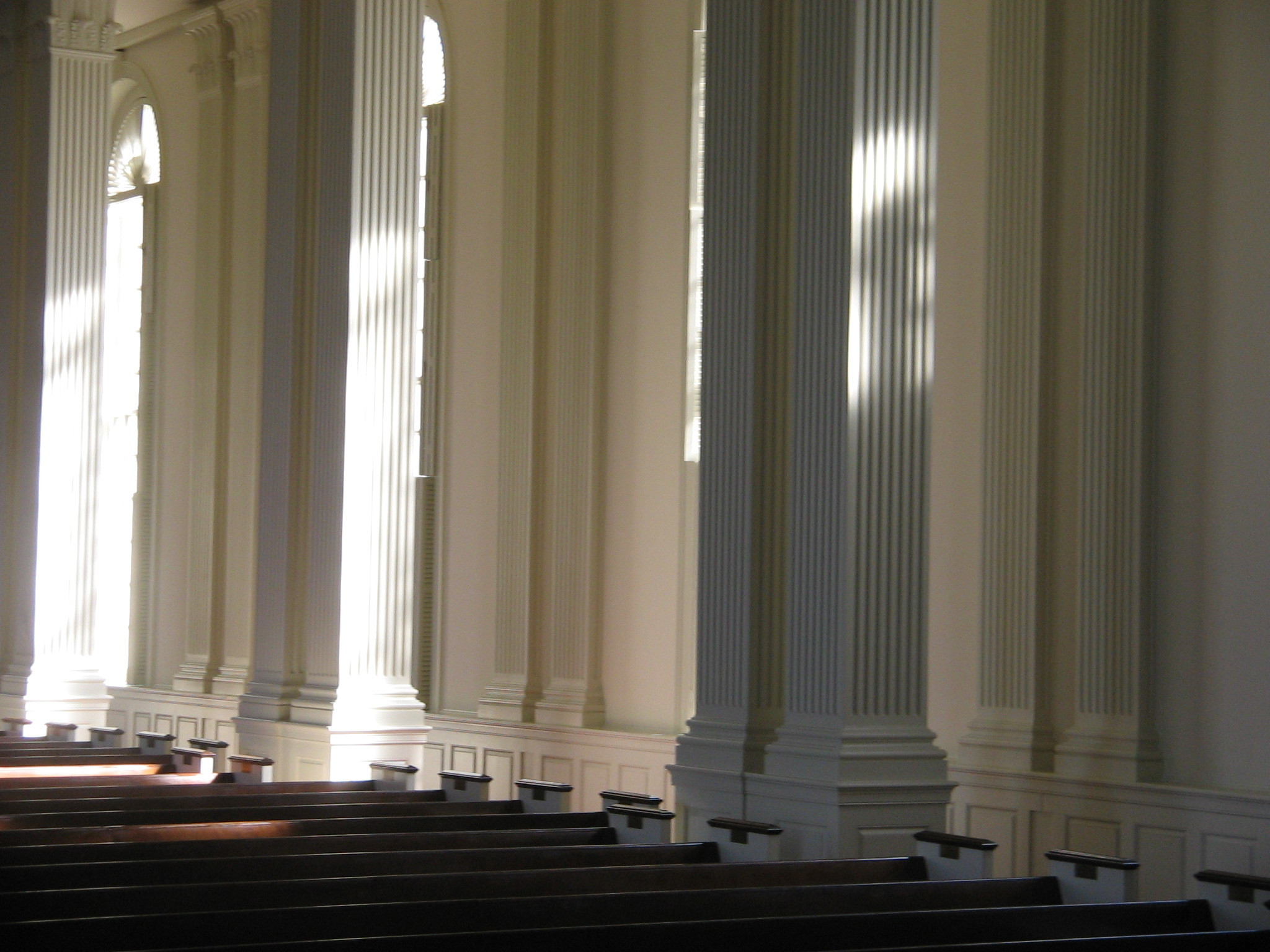 It was a warm, sunny Saturday afternoon.
It was a warm, sunny Saturday afternoon.
With a calm breeze and clouds drifting lazily across the sky, it was the perfect day to be outside enjoying the summer weather. We, however, walked purposely towards our indoor destination; I found my mind preparing for what was to come that next hour. Yes, it takes this mindset, this level of dedication to truly be successful in rehearsals.
As a younger musician, I dutifully set aside the time to practice but made every excuse possible to finish early, give myself more breaks, or take the lazy way out. When the clock struck the magical number, my practice would immediately halt. Often times, practice sessions like this kept me from ever really getting in touch with the musical depth of whatever I was studying. I couldn’t immerse myself beyond the mere surface of the piece – for fear of who knows what… losing track of time, heaven forbid. I struggled in performances to keep myself interested in what I was playing – imagine the poor audience!
I refuse to refer to myself now as an “older musician,” but as hopefully wiser, I’ve discovered how exciting and passionate rehearsals can be. During my time at Eastman, I found myself with stacks of repertoire and not enough hours in the day. Rehearsal time was precious and had to be productive. I began practicing pieces in sections, studying and preparing my scores outside the practice room, and keeping a journal of what I practiced, time spent, and what I learned each day. What a difference! Practicing no longer felt like a chore and I had a very real way of charting my progress. Suddenly, I became responsible for my own growth as a musician; I focused my time and energy on identifying problems and creating solutions.
So here we are on a beautiful Saturday making our way to a rehearsal of Brahms’ Sonntag. This piece was originally written for voice and piano, though we transcribed it for tenor saxophone and piano. The character is a young man pining after his “beloved,” a young woman in church who may or may not even know he exists. We struggled with the interpretation of this piece – is he serious? Is it sad? How are the two verses different? It often feels like you’re handed a stack of puzzle pieces and asked to make sense of them. The text, the character, the composer’s intentions, the time period, the accompaniment, the musical phrases, the necessity for breath… which takes precedence and when? There is no clear road map, unfortunately. It’s a method of trial and error.
“Let’s try it again,” one of us encourages. “This time, let’s bring out the subtext in the second verse a little more and see how that feels.”
Constant evaluation. Passionate disagreements. Music over text. Text over music. German translations. Creating phrase shapes in perfect unison. Breathing together. Dialogue. Setting the scene. Sensing the text not spoken and learning to speak through the piano interlude.
“It’s laughter,” I said.
“What?” Steve responded. “What are you talking about?”
“The interlude - this measure that seems to come out of nowhere and is interrupted by your entrance – I think Brahms was writing in laughter.”
“Just because the word ‘laughter’ appears in the next line doesn’t mean that Brahms wrote ‘laughter’ into the musical interlude,” Steve said skeptically.
“This is just my interpretation, but I think this interlude represents the things the character won’t or can’t say aloud. It’s his thought process. He catches himself dreaming deeply about this beautiful girl and calling her his ‘beloved’ and maybe he realizes that she sees right past him and it’s impossible that they could ever be together. Maybe he starts laughing at himself and then realizes that he was in the middle of telling a story – interrupting himself with verse 2. It’s plausible, you have to admit,” I said, realizing how passionate I was about this revelation.
“Sure, it’s plausible, but who really knows?” Steve said. “Just playing the Devil’s Advocate here, what if Brahms just intended it to be nice music in between the verses? Why can’t we just play this musically – why does everything have to represent something else?”
“For me, assigning ‘laughter’ to that musical figure helps me define it and it changes the way I play. I need to think and feel something in that measure. Playing and thinking have to by one in the same for me. If I play without thinking, I won’t be communicating. Listen,” I said.
I sat back down, having risen to my feet during my impassioned soap-box speech, and began the interlude again. Version 1 was musical: carefully-shaped phrases, a decent amount of time at “the right musical moments,” and approaching the measure in question, I swelled and stretched the tempo, trying to fit it into the musical context of the preceding bars. Version 2 was my attempt at communicating the character’s inner thoughts. The first few bars were reflective, imaginative. When I arrived at the measure in question, I played it substantially lighter, very little pedal, and with more forward motion, rather than pulling back. As such, the entrance for verse 2 seemed to “interrupt” the musical figure rather than waiting for it to finish.
“Did you hear how my thought process changed the whole character of that interlude? Music over text or text over music?” I asked.
“I agree with you, I’m not saying I don’t. I’m sure you could base a whole masterclass off this idea but who’s to say that there’s not another way of playing it out there that’s equally convincing?”
“I’m not saying there’s not but I am saying that we need to choose our interpretation and we both have to agree.”
Give and take. Discussion. Communication. Alternatives. Perspective. Respect. Willingness to try. Aren’t these the great challenges of any working relationship? It takes this and more to make a rehearsal work. It’s mentally exhausting, it’s consumes you, and yet it drives you at the same time. Did we ever reach an agreement, you ask? Yes, for the sake of the music and being true to all the clues left to us by the composer, we opted to stay in character – speaking, sharing, thinking, mourning, and in the end, laughing.


 This strophic German song (Op. 47, No. 3) by Johannes Brahms is about Sunday love - a young man longing for the beautiful girl he only sees in church on Sunday. Steve transcribed it for saxophone and piano, as you can hear in the recording below (listen for laughter in the piano interlude and coda!) For an in-depth description of our rehearsal process for this piece,
This strophic German song (Op. 47, No. 3) by Johannes Brahms is about Sunday love - a young man longing for the beautiful girl he only sees in church on Sunday. Steve transcribed it for saxophone and piano, as you can hear in the recording below (listen for laughter in the piano interlude and coda!) For an in-depth description of our rehearsal process for this piece,  It was a warm, sunny Saturday afternoon.
It was a warm, sunny Saturday afternoon.




